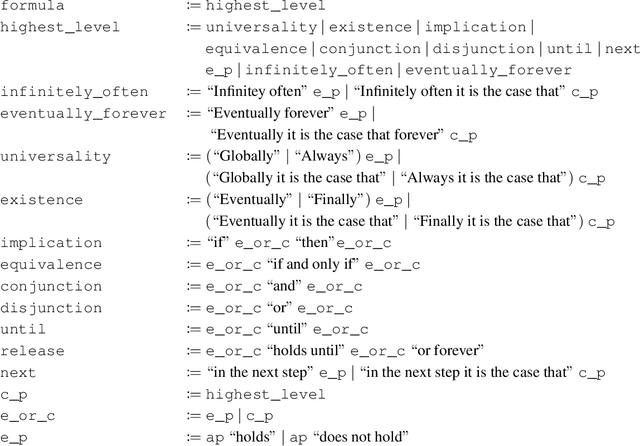Formal Specifications from Natural Language
Paper and Code
Jun 04, 2022


We study the ability of language models to translate natural language into formal specifications with complex semantics. In particular, we fine-tune off-the-shelf language models on three datasets consisting of structured English sentences and their corresponding formal representation: 1) First-order logic (FOL), commonly used in software verification and theorem proving; 2) linear-time temporal logic (LTL), which forms the basis for industrial hardware specification languages; and 3) regular expressions (regex), frequently used in programming and search. Our experiments show that, in these diverse domains, the language models achieve competitive performance to the respective state-of-the-art with the benefits of being easy to access, cheap to fine-tune, and without a particular need for domain-specific reasoning. Additionally, we show that the language models have a unique selling point: they benefit from their generalization capabilities from pre-trained knowledge on natural language, e.g., to generalize to unseen variable names.
 Add to Chrome
Add to Chrome Add to Firefox
Add to Firefox Add to Edge
Add to Edge